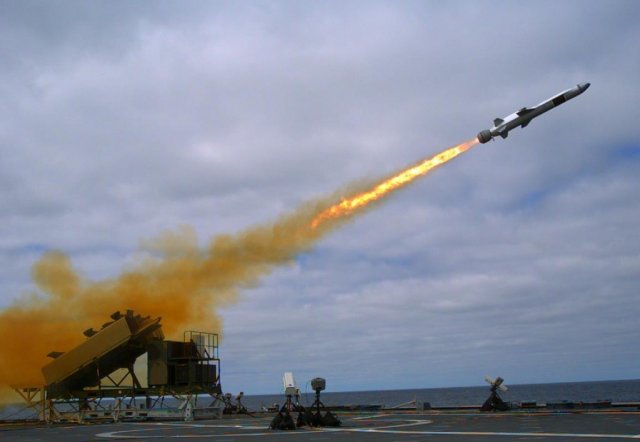Breaking news
U.S. Navy Issues Request for information (RFI) for New Frigate Anti-Surface Missile.
| |
|||
| a | |||
Naval
Forces News - USA |
|||
U.S.
Navy Issues Request for information (RFI) for New Frigate Anti-Surface
Missile |
|||
The
Navy has issued a call to industry for options for an over-the-horizon
anti-surface missile for the service’s future frigate design,
according to a notice from Naval Sea Systems Command (NAVSEA). The request
for information (RFI) — issued on June 15 — asks industry
for options for a complete systems that includes the munitions, the
fire control system and the launch system for the future missile destined
for the frigate with an upward weight limits of 22,500 pounds, according
to the notice. |
|||
Since the Navy announced its decision to modify the two existing Littoral Combat Ship designs for the frigate, two systems have emerged as likely contenders for the OTH business — Boeing with a modified version of its 1980s era RGM-84 Harpoon anti-ship missile and a Raytheon-Kongsberg team with Kongsberg’s Naval Strike Missile (NSM) based on Kongsberg’s Joint Strike Missile (JSM). The service tested a version of the NSM onboard the Littoral Combat Ship USS Coronado (LCS-4) last year. The Harpoon as been a mainstay aboard U.S. ships for more than 30 years. The striking power an OTH missile brings to the U.S. surface fleet has been folded into the Navy’s emerging “distributed lethality” concept. The Navy has admitted repeatedly the anti-ship capability of its surface ships has suffered during the almost 15-year U.S. focus in low-intensity ground conflicts in Afghanistan and Iraq. As part of the distributed lethality concept — unveiled earlier this year by U.S. surface warfare leaders — the modified LCS frigate design could work with existing guided missile destroyers in three to four ship surface action groups (SAGs) that could give the U.S. effective lower cost options for power projection outside of the larger carrier strike group construct. |



























